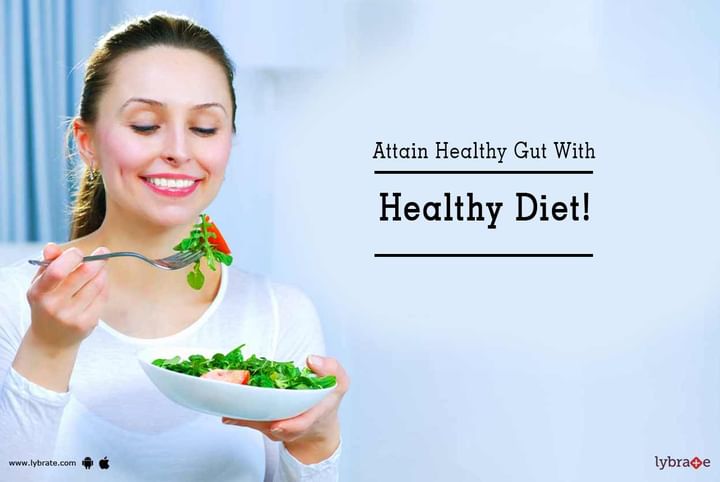Attain Healthy Gut With Healthy Diet!
Contrary to popular belief, not all bacteria are harmful to us. Within our body, each 'human' cell is complemented by 10 microbial cells. These range from bacteria in the gut to viruses and fungi in other parts of the body. Gut bacteria help to digest food, produce vitamins, communicate with the immune system and create small molecules that help the brain function. Thus it is essential to have a healthy gut - by which we mean a gut with plenty of friendly bacteria.
There are many different types of bacteria living in the gut. Each of these bacteria grow vigorously on different food items. Thus to have a healthy gut, your diet should include a variety of cereals, fruits, vegetables, etc. Here are a few tips to keep your gut bacteria healthy.
1. Increase your fiber intake - A diet that is rich in fiber is the best way to promote the growth of diverse microbes in the gut. This includes fruits, vegetables, beans, lentils, cereals and nuts. Fiber also helps prevent constipation and has been linked to lowering the risk of cancer. For prevention from the buildup of gas and bloating by increasing fiber, drink plenty of water with all your meals.
2. Include probiotic food in your diet - Probiotics need not only be taken in the form of supplements. This can easily be incorporated into your daily diet. These can be defined as live bacteria and yeasts that help the digestive system. Yogurt is one of the most common sources of probiotics. Kimchi or fermented vegetables, miso, cheese, buttermilk, fermented condiments and lentil sprouts are other examples of probiotic food you should include in your diet.
3. Try having some carminatives in your meals - Carminatives are food items that soothe the digestive system. Some common carminatives are cumin, ginger, oatmeal, cardamom, cinnamon and fennel. While cumin helps with the digestion of black beans, cooked oatmeal lines the stomach and soothes it.
4. Eat weight loss friendly food - Being overweight not only affects how you look but also affects the digestion process. When you lose weight one of the first things you would notice is a lowered amount of abdominal discomfort as your gut begins to feel healthier. This is because weight loss lowers the pressure on the lower esophageal sphincter. This does not allow the valve to open more than necessary and hence prevents food and stomach acid flowing back into the esophagus. Increase your intake of fruits and vegetables.



+1.svg)
